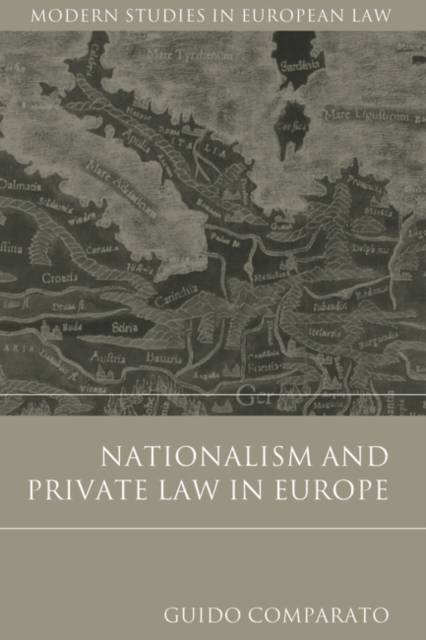
- Afhalen na 1 uur in een winkel met voorraad
- Gratis thuislevering in België vanaf € 30
- Ruim aanbod met 7 miljoen producten
- Afhalen na 1 uur in een winkel met voorraad
- Gratis thuislevering in België vanaf € 30
- Ruim aanbod met 7 miljoen producten
Zoeken
Omschrijving
While the internationalization of society has stimulated the emergence of common legal frameworks to coordinate transnational social relations, private law itself is firmly rooted in national law. European integration processes have altered this state of affairs to a limited degree with a few, albeit groundbreaking, interventions that have tended to engender resistance from various actors within European nation-states. Against that background, this book takes as its point of departure the need to understand the process of legal de-nationalization within broader political frameworks. In particular, it seeks to make sense of opposition to Europeanization at this point in the evolution of European law when, despite growing nationalist attitudes, great efforts have been made to produce comprehensive legal instruments to synthesize general contract law - an area that has traditionally been solely within the ambit of nation-states. Combining insights from the disciplines of law, history, and political science, the book investigates the conceptual and cultural associations between law and the nation-state. It examines the impact of nationalist ideas in modern legal thought and reveals the nationalist underpinnings of some of the arguments employed against and, somewhat paradoxically, even in support of legal Europeanization. (Series: Modern Studies in European Law - Vol. 45)
Specificaties
Betrokkenen
- Auteur(s):
- Uitgeverij:
Inhoud
- Aantal bladzijden:
- 332
- Taal:
- Engels
- Reeks:
- Reeksnummer:
- nr. 45
Eigenschappen
- Productcode (EAN):
- 9781849465878
- Verschijningsdatum:
- 15/05/2014
- Uitvoering:
- Hardcover
- Formaat:
- Genaaid
- Afmetingen:
- 160 mm x 234 mm
- Gewicht:
- 639 g

Alleen bij Standaard Boekhandel
+ 440 punten op je klantenkaart van Standaard Boekhandel
Beoordelingen
We publiceren alleen reviews die voldoen aan de voorwaarden voor reviews. Bekijk onze voorwaarden voor reviews.








